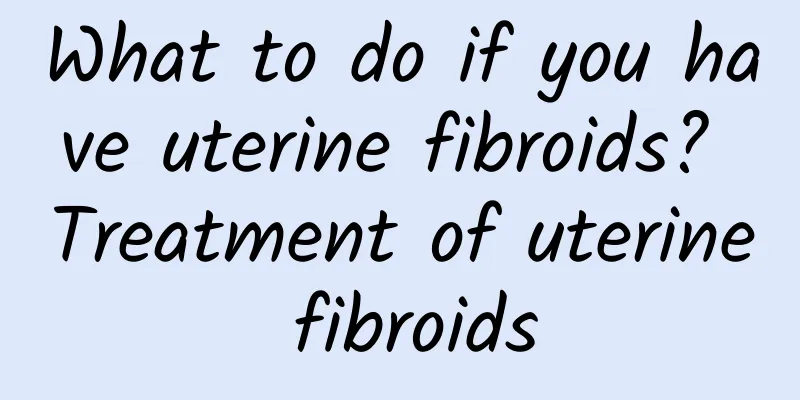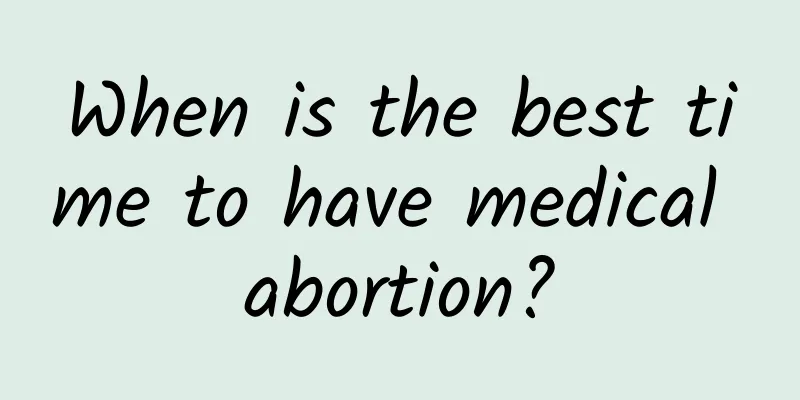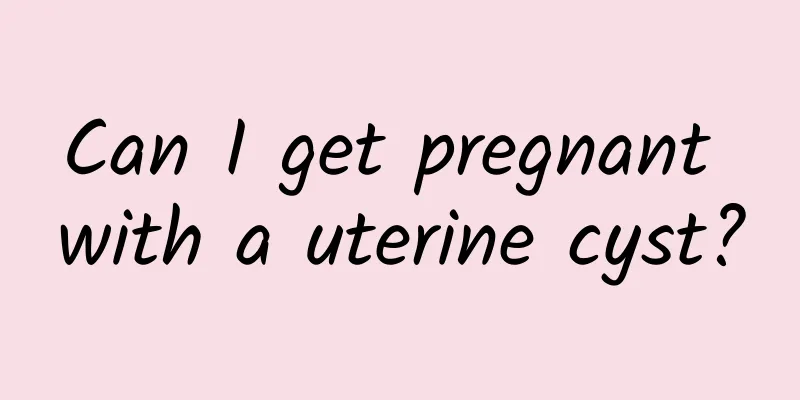What to do if you have uterine fibroids? Treatment of uterine fibroids

|
Diseases need to be treated in time, and avoiding treatment will only lead to further deterioration of the condition. Although most uterine fibroids are benign, they can also affect people's study and life. So, what if you have uterine fibroids? Uterine fibroids should be treated individually based on the patient's age, fertility requirements, symptoms, and the location, size, and number of the fibroids. Small, asymptomatic uterine fibroids generally do not require treatment, especially in menopausal women. After menopause, uterine fibroids can gradually shrink or even disappear. The following treatments are available for patients with uterine fibroids. 1. Surgery is still the most commonly used treatment for uterine fibroids. It is mainly divided into hysterectomy and myomectomy. (1) Hysterectomy: Hysterectomy can be performed if there are surgical indications, fertility preservation is not required, or there is a suspicion of malignant changes. Since the cervix after subtotal hysterectomy may become cancerous in the future, and the treatment of stump cancer is difficult, total hysterectomy is currently recommended for most patients. Cervical smear cytology should be performed before surgery to rule out cervical malignant lesions. Premenopausal women can retain both adnexa, and postmenopausal women can consider removing both adnexa at the same time. (2) Myoma removal: Myoma removal can be considered for patients ≤ 40 years old who want to maintain their fertility or who do not want to have their uterus removed. 2. Drug treatment, mainly short-term treatment, is mainly suitable for patients with uterine fibroids who have surgical indications. Preoperative medication can correct anemia, reduce the size of the uterus, avoid intraoperative bleeding, and reduce surgical difficulties; menopausal women, uterus smaller than 10 weeks of pregnancy, mild symptoms; patients with surgical contraindications due to other complications. |
<<: What should I do if I have uterine fibroids? How should I treat uterine fibroids?
>>: What should I do if I have uterine fibroids? How should I use medicine for uterine fibroids?
Recommend
5 details to teach you to stay away from ovarian cysts
Ovarian cyst is a common gynecological disease th...
Will urinary tract infection affect menstruation?
Will a urinary tract infection affect my menstrua...
What is the best treatment for Bartholinitis?
Bartholinitis is a common disease among women. In...
What medicine can cure endometritis and pelvic inflammatory disease faster?
Endometritis and pelvic inflammatory disease can ...
Which abortion procedure is the safest? Is double-chamber decompression abortion good?
In today's society, there are many cases of u...
What is the cause of vulvar leukoplakia?
Among the many gynecological diseases, vulvar leu...
What is the solution for intermittent menstruation for a month?
What is the reason for intermittent menstruation ...
Pay attention to subserosal fibroids!
Many women panic and don't know what to do af...
Ask the hospital about cervical precancerous lesions
Gynecologists said: There are many factors involv...
Long-term irregular menstruation in women can lead to infertility
Irregular menstruation is a common disease among ...
How much does it cost to treat cervical erosion?
Many patients are concerned about how much it wil...
Briefly talk about the symptoms of irregular menstruation
Nowadays, women are prone to menstrual irregulari...
Want to lose weight successfully? Vitamin B group, calcium, four essential nutrients
Don’t forget to supplement nutrients during weigh...
What are the characteristics of Bartholinitis?
Bartholinitis is a common disease among women, wh...
What are the symptoms of chocolate cyst?
Chocolate cyst is a disease that people are famil...









